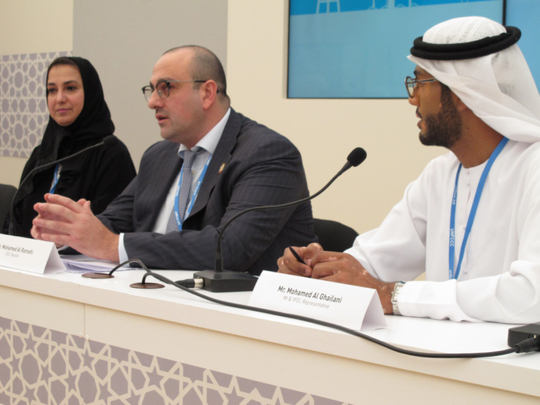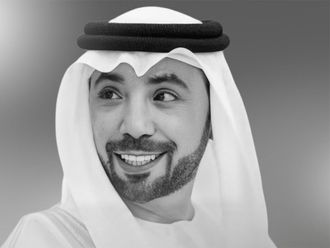
Marrakech: Young people aged 18-25 say they are more concerned about climate change than a raft of other pressing issues including the economy, terrorism and unemployment, suggests a new global UAE-sponsored survey released at COP22 United Nations Climate Change Conference in Morocco.
Abu Dhabi-based Masdar energy company rolled out its Masdar Gen Z Global Sustainability Survey at the GCC Pavilion at Cop22 Village on Wednesday.
The survey conducted online queries with 4,704 young people from 20 countries in the Americas, Europe, Asia, the Middle East and Africa.
Mohammad Jameel Al Ramahi, chief executive officer of Masdar, said the survey imparts unusual insight into the minds of Post-Millennials known as Generation Z and their deep concern over global warming and impacts on the future.
“We are all here in Marrakech because we know unprecedented action is needed,” Al Ramahi said. “We need to understand the hopes and concerns of young people.”
Dr Nawal Al Hosany, Masdar executive director, Sustainability and Brand, said the landmark study asked respondents to share their thoughts on a sliding scale about climate change, development and renewable energy.
“We believe if we don’t engage youth today, we are going to miss huge opportunities,” Al Hosany said.
“Eight out of 10 said governments need to listen more.”
In the Mena region, Al Hosany said young people are so concerned about their environment, that 59 per cent of respondents said they would like to work in careers in the field to help shape a stronger ecological future.
In the UAE, that number rose to 75 per cent, Al Hosany said, because young people are more aware of environmental issues given the high degree of priority and the number of sustainable programmes the country has placed on the issue.
Mohammad Al Ghailani, a student of Masdar Institute and a member of Young Future Energy Leaders, said at the survey launch that he shared the concerns voiced in the survey.
“For me, as a youth member and the Emirati community, what I find is the initiative Masdar took to actually listen to what our concerns are. Without this connection with youth and open communication, that limits development. Youth hopefully understand climate change will be one of the biggest challenges in the future,” he said. “It shows youth are willing to change their behaviour and contribute.”
In its public release, Masdar said the “findings clearly illustrate the level of concern among young people about climate change, with 40 per cent of those surveyed naming it among the biggest challenges facing the world in the next decade, ahead of the economy (34 per cent), terrorism (32 per cent), poverty and inequality (29 per cent) and unemployment (29 per cent).”
The survey numbers also showed that young people believe the “government and the private sector share responsibility for developing clean technology (81 per cent), but they expect more government investment in renewable energy (84 per cent)”.
According to Masdar’s survey, today’s youth also see their own behaviour as particularly important when it comes to supporting clean technology. Half (50 per cent) believe that getting individuals to change their behaviour is one of the main barriers to investing in renewable and clean technology.
UAE youth favour solar power
Solar energy is the most preferred future energy source in the UAE (53 per cent), followed by natural gas and oil, the survey suggested.
After the UAE, the preference for natural gas is highest in China (35 per cent) and Russia (29 per cent). Nuclear energy receives the most endorsement from youth in Jordan (35 per cent) and India (32 per cent), while Saudi Post-Millennials are unsurprisingly the most attached to oil.
More than a third (38 per cent) of Gen Z youth in Saudi Arabia see oil as the country’s priority future energy source.












